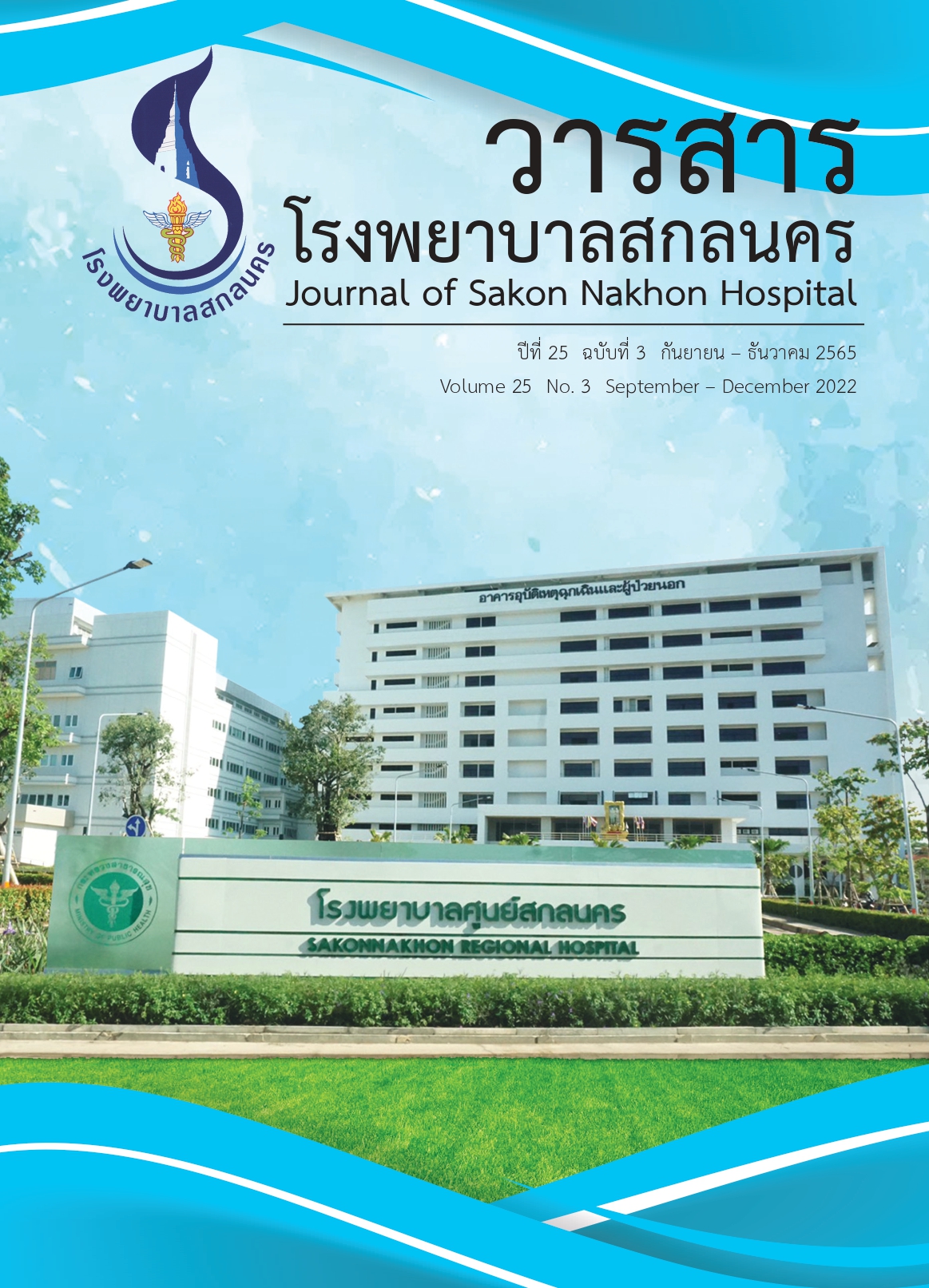Development of Balancing Act Recovery Model for Falling Prevention
Keywords:
Model for restoring stability, Balancing Act, Falls, ElderlyAbstract
The objective of this study was to develop the balancing act recovery model for falling prevention by applying the Mini–BESTest assessment and compare the balancing act ability before and after applying the balancing act recovery model. The samples were 80 elderly persons. The study was conducted from June 7th to October 15, th 2022 at Phra Ajarn Fan Arjaro hospital. The study tools were the balancing act recovery model for falling prevention, questionnaire and physical fitness test. The content validity was examined by 3 experts and content validity index was 0.97. The tool reliability was 0.82. Data were analyzed by using the descriptive statistics, Chi–square test, paired t–test statistics and Independent t–test.
The results of the study showed that before using the balancing act recovery model for falling prevention, there was no statistically significant difference (p > 0.05) in the level of balance act ability between the experimental and control group. However, after using the balancing act recovery model for falling prevention, their levels of balancing act ability were significantly different (p < 0.01). The level of balance act ability in experimental group after using the model was improved significantly (p < 0.01). The findings indicated that the development of the balancing act recovery model for falling prevention was able to improve the the geriatric balance rehabilitation.
References
World Health Organization [WHO]. WHO global report on falls prevention in older Age. Geneva; 2007.
United Nations. World Population Ageing 2017 Highlights [Internet]. 2017 [Cited 2022 March 12]. Availablefrom: http://www.un.org/en/development/desa/population/publications/pdf/ageing/ WPA2017 Highlights.pdf
กองป้องกันการบาดเจ็บ กรมควบคุมโรค กระทรวงสาธารณสุข.สังคมสูงวัยใส่ใจพลัดตกหกล้ม [Internet]. 2564 [Cited 2022 March 12]. Available from: https://ddc.moph.go.th/uploads/publish/1157520210624083452.pdf
สถาบันเวชศาสตร์ผู้สูงอายุกรมการแพทย์.แนวทางการดูแลรักษากลุ่มอาการสูงอายุ (GeriatricSyndrome). กรุงเทพฯ: สถาบันเวชศาสตร์ผู้สูงอายุกรมการแพทย์กระทรวงสาธารณสุข; 2558.
ธีรภัทร อัตวินิจตระการ, ชวนนท์อิ่มอาบ. ประสิทธิผลของโปรแกรมการเตรียมความพร้อมและป้องกันการหกล้มในผู้สูงอายุ. ว. แพทย์เขต 4–5 2562;38(4):288–298.
สมลักษณ์เพียรมานะกิจ, พัชรินทร์พุทธรักษา, สุพิน สาลิกา, วิไล คุปต์นิรัติศัยกุล. ความสามารถในการทรงตัวของผู้สูงอายุในชุมชนอำเภออัมพวา. ว. กายภาพบำบัด 2560;2:52–62.
ยุภาภรณ์ รัตนวิจิตร และคณะ.แบบประเมินการทรงตัว Mini–BESTest ฉบับภาษาไทย: การแปลพร้อมกับการศึกษาความเที่ยงของผู้ประเมินและความตรงเชิงสภาพของแบบประเมินในผู้สูงอายุ. ว. กายภาพบำบัด 2563;42(3):174–85.
Polit DF, Beck CT. Nursing research: Principles and methods. 7th ed. Philadelphia: Lippincott Williams & Wilkins; 2004.
กาญจนา พิบูลย์, ไพบูลย์พงษ์แสงพันธ์, พวงทอง อินใจ, มยุรีพิทักษ์ศิลป์. ประสิทธิผลของโปรแกรมป้องกันการหกล้มแบบสหปัจจัยในผู้สูงอายุที่อาศัยในชุมชน [อินเทอร์เน็ต]. 2562 [เข้าถึงเมื่อ 12 มีนาคม 2565]. เข้าถึงได้จาก: http://dspace.lib.buu.ac.th/xmlui/handle/1234567890/3675
จุฑาทิพย์รอดสูงเนิน. ผลของโปรแกรมการออกกำลังกายที่มีต่อการทรงตัวและความกลัวการล้มของผู้สูงอายุในชุมชน. ว. ศูนย์อนามัยที่9 2564;15(38):541–60.
Downloads
Published
How to Cite
Issue
Section
License
บทความที่ตีพิมพ์ถือว่าเป็นลิขสิทธิ์ของวารสารโรงพยาบาลสกลนคร การคัดลอกเพื่อพัฒนาเชิงวิชาการต้องได้รับการอ้างอิงอย่างถูกต้อง






